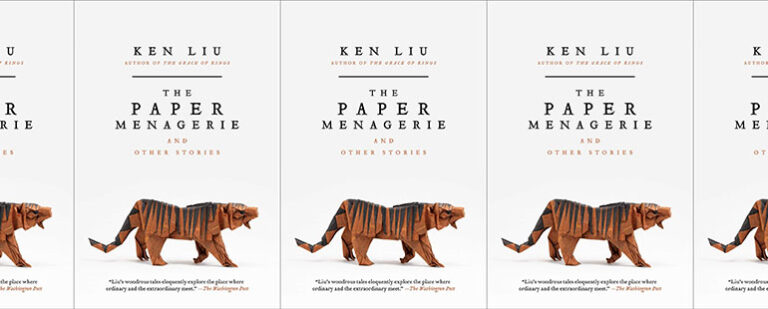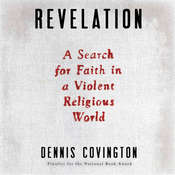You’re So Vain, You Probably Think this Post is About You

A friend once asked if I’d based the guinea pig (mentioned, but offstage) in my first novel on his daughter’s imaginary friend (of whom I’d never heard tell). In his defense: they had the same, unusual name. In my defense: ?!@&?#*%?
Maybe people want novels to be true. Maybe they want to be in those novels. Or maybe they’re terrified of this same thing—of having their secrets exposed. But all authors get asked if we’ve “based the characters on real people”—something that in my experience is actually extremely rare. So what happens when friends and family convince themselves that they’re the ones you’ve written about? I asked a few friends to weigh in with their juiciest stories of supposed identity theft.
It might be a shared physical characteristic that triggers the comparison. Sian Griffiths, author of the novel Borrowed Horses, once read a scene at the university where she taught  about a woman called “the purple-haired girl.” She writes, “My students decided that, of course, this femme fatale must be a girl in the class based solely on the fact that she, too, had purple hair.” She had written the scene a year before she met these students, but still, they insisted she must have been the inspiration “even though the two were completely dissimilar in body type, personality, or any other discernible trait. I suspect they are all secretly hoping to find themselves in future novels . . .”
about a woman called “the purple-haired girl.” She writes, “My students decided that, of course, this femme fatale must be a girl in the class based solely on the fact that she, too, had purple hair.” She had written the scene a year before she met these students, but still, they insisted she must have been the inspiration “even though the two were completely dissimilar in body type, personality, or any other discernible trait. I suspect they are all secretly hoping to find themselves in future novels . . .”
A name might do the trick as well. I’ve had my own troubles with this, beyond the guinea pig issue. And before Joanna Rakoff’s novel A Fortunate Age appeared, her publisher’s legal team had her call up every single person she knew named Rachel (a lot of people, it turned out) to have them sign a waiver saying they wouldn’t sue. (In the long run, it was another friend, not named Rachel, who saw herself in the character.) At a bookstore, the writer and poet Jane Eaton Hamilton once read a story with a protagonist named Bonnie. “A couple days later, I got a two-page angry letter from my ex, Bonnie, who was furious I’d exposed her. I had to tell her that in truth, I’d written the story before I’d met her and as far as I knew from our brief months together, not one biographical detail of the two lined up. I said that if I’d intended to use her in a story, I probably would have changed her name.”
 Or the similarity might be situational: of course your brother-in-law is going to see himself in the brother-in-law of your book. In that same novel, Rakoff depicted “a grande dame-like mother figure, a wealthy Upper East Sider. When her daughter has a baby, she gives her boxes of old-fashioned, exclusively blue clothing, all of it covered with baseball equipment. My mother simply assumed this character was her. In fact, all she said to me about the novel was, ‘Since you didn’t like the clothing I bought for Coleman, I won’t be buying any clothing for Pearl.’ That’s it. That was her only comment.”
Or the similarity might be situational: of course your brother-in-law is going to see himself in the brother-in-law of your book. In that same novel, Rakoff depicted “a grande dame-like mother figure, a wealthy Upper East Sider. When her daughter has a baby, she gives her boxes of old-fashioned, exclusively blue clothing, all of it covered with baseball equipment. My mother simply assumed this character was her. In fact, all she said to me about the novel was, ‘Since you didn’t like the clothing I bought for Coleman, I won’t be buying any clothing for Pearl.’ That’s it. That was her only comment.”
Even when they don’t recognize themselves, people who know you can presume autobiography in your work; they think they recognize mutual acquaintances. When Emily Franklin’s novel Liner Notes was published, her mother “got lots of calls from old friends who ‘hadn’t known she was ill.’ The main character’s mother had cancer. Mine did not.”
The stakes of such misunderstandings can be personal (an angry friend) or even financial (people threatening to sue, despite—usually—any grounds to). And sometimes, they can be even higher: Mark Wisniewski, author of the forthcoming novel Watch Me Go, writes that “a (now former) friend of mine who was a bookie and rather the drinker was convinced I’d based the main character in a short story of mine (‘Pocket’) on him—to the point that we got into a bit of a drunken shouting match, most of it him repeatedly demanding that I give him (in cash, right then) at least half of my ’royalties.’ To which I replied, ‘Fine, bro. They gave me two contributor copies—take one of them off that shelf.’ What kills me is that I did use a few things l learned from him about gambling and bookmaking in Watch Me Go. I’ll admit that if he walks into the launch party in January, I’ll be more than a little nervous.”
What about the other side of things, though? There are times when it can be nearly impossible to read something by a friend and not think she’s talking about you. Lynne Raughley wrote a wonderful essay a few years back about how an anecdote she’d told her husband, Peter Ho Davies, ended up in his story. From the essay: “‘Did it really never occur to you that it was mine to write?’ you ask. ‘But you didn’t,’ he says. ‘Was there a deadline?’ you ask, but it’s not really a question.”
Chris Cander, author of the forthcoming novel Whisper Hollow, once attempted to befriend another writer, also a mother of young kids. Chris and a girlfriend arranged a get-together with the writer and her children, but soon realized that this woman felt uncomfortable in their presence. “The botched play date ended, and our second invitation was almost-politely declined. A year and a half later, she released her next book, and my friend called me. ‘You will never believe this: we are in the first chapter. We are the women at the park!’ There was nothing particularly disparaging about our characters, except that the narrator felt frumpy, overwhelmed and lonely in their presence. One matched my girlfriend, who was described as looking like a cheerleader with her long blonde hair. The other, presumably me, accidentally insulted the narrator’s appearance. (It didn’t happen in real life–that I know of.) I wasn’t offended as much as surprised to see us in her book, and a little saddened, because clearly our efforts were either misinterpreted or unwanted.”
And there are depictions that seem so clear, any reader might pick up on them. The owner of one of my favorite independent bookstores remembers reading a book by a local college professor: “I came across a passage in which the middle-aged, Jewish, male, academic protagonist living in a small college town rails on the woeful lack of sophistication of said town, pointing specifically to its bookstore, which he calls ‘a joke.’ I couldn’t help but ask him if he, in fact, thought my store was a joke—after all, I genuinely liked his book. He assured me that he didn’t actually share all of his (remarkably self-styled) character’s opinions, but I have, to this day, carried that little line in my heart as a sign of my failure and the inherent frivolity of trying to maintain an independent bookstore in a small town. When I see him out, I cringe.”
And of course it’s incidents like these—and some more famous ones—that make it hard for the rest of us to explain that no, we really didn’t base that character on you.
Let’s all sing it together: I had some dreams, they were clouds in my coffee, clouds in my coffee, and . . .


